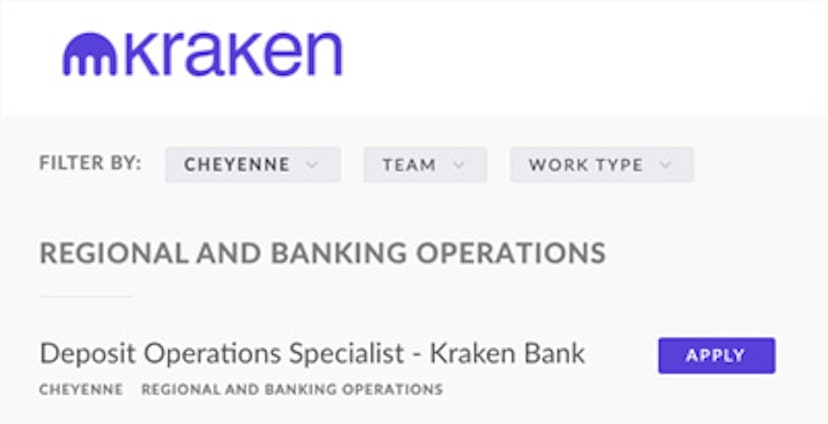Pressed by an army of lobbyists, the cryptocurrency industry has garnered tax breaks, discounted energy prices, and a host of other sweeteners from officials keen to attract investment and create jobs. A review by the Tech Transparency Project (TTP) found that crypto companies have provided little in return.
Instead, state governments that have acquiesced to the industry’s demands have faced budget shortfalls, surging energy consumption, and serious environmental damage. The jobs that crypto boosters promised rarely materialized.
The benefits for crypto businesses are one concrete result of the industry’s recent push to increase its influence in state capitals and in Washington. Additional perks for the crypto industry are now under consideration in Illinois, Georgia, and elsewhere. But the recent decline in the price of bitcoin and resulting layoffs at some cryptocurrency companies show just how risky it can be to bet on these new technologies and the companies behind them.
TTP’s review of state legislation, local government records, corporate statements and other public documents revealed a string of examples—stretching from Nevada and Wyoming to Kentucky—in which the crypto industry has reaped special benefits, while failing to deliver much in return.
In Virginia Beach, for example, a cryptocurrency mining company called BCause went bankrupt months after it received a business development grant from the city worth up to $500,000, leaving behind $1.7 million in unpaid bills from the local power company. In 2018, when the grant was announced, the company said it planned to add 100 full-time jobs in Virginia, paying an average annual salary of $60,000. When it filed for bankruptcy, after collecting more than $436,000 in grant money, it had just 27 full-time employees and four part-time workers split between Virginia Beach and Chicago.
In 2017, Montana enacted a law at the urging of industry leaders that cut property taxes on large data centers, including those used to mine cryptocurrency. Lawmakers hoped the measure would attract jobs and revenue to the rural state. Localities added their own sweeteners, offering business development grants and additional incentives, and cryptocurrency miners rushed to take advantage of the benefits.
Almost immediately, however, the mines began to spell trouble for Montanans. Complaining about excessive noise, waste, and power use from the energy-hungry mines, some residents called for a moratorium on cryptocurrency mining. An acoustics study aimed at mitigating the noise from one mining facility cost the taxpayers of Bonner, Montana, nearly $20,000.
By 2019, Missoula County imposed emergency zoning restrictions over industry objections in a bid to rein in the crypto mining operations and their “grotesque” energy consumption. In 2021, the county made those zoning changes permanent.
And in Tennessee, residents complained in 2021 that noise from a facility that received discounted electricity and a $100,000 economic development incentive from the public utility company disturbed their sleep.
These examples add to a growing body of evidence suggesting that crypto is an unusually bad deal for states and local governments. The crypto industry has aggressively sought favorable tax, regulatory and legal treatment from states, while mostly failing to deliver the promised benefits.
Kentucky
In 2021, Kentucky Gov. Andy Beshear signed a pair of bills that promised millions of dollars in giveaways to cryptocurrency mining operations. One measure, known as HB230, exempted “all equipment necessary to mine, such as servers and computers, racks, power distribution units, transformers, cabling, switchgear, software, network equipment, and like items” from sales taxes. It also exempted the energy used in cryptocurrency mining from taxation.
The other bill, SB255, extended eligibility for tax incentives intended for clean energy businesses to cryptocurrency mining operations. Neither measure requires miners to guarantee a certain number of jobs in order to qualify for the program.
According to State Rep. Steven Rudy, the primary sponsor of HB 230, the measures came at the request of Core Scientific, a Washington State-based blockchain infrastructure company with a facility in Calvert City, Kentucky:
“It all began with a conversation with that facility in Marshall County, where they basically said ‘we’re a manufacturer, but we’re not getting treated like other manufacturers because our technology is so new,’” Rudy said.
Rudy said that even if cryptocurrency failed to boost economic development in the state, the tax measures wouldn’t cost the state anything. Legislative analysts disagreed. A state report published in November 2021 estimated the combined cost of the incentives at $11.6 million per year.
It’s too soon to tell how much these measures, which went into effect on July 1, will actually cost Kentuckians. But several state programs are already facing significant budget pressure, which could be exacerbated by the cryptocurrency incentives. Kentucky’s most recent budget agreement, announced in March 2022, includes education funding that is 27% lower in inflation-adjusted terms than it was in 2008. It includes no raises for teachers and no funding for a $2.5 million grant program for local libraries.
The tax incentives are also unlikely to create new jobs in Kentucky. In July 2020, a Ukrainian-owned steel mill in western Kentucky halted operations, laid off more than 80 workers, more than three quarters of its workforce, and pivoted to cryptocurrency mining, which requires far fewer employees. Workers hoped that the company, CC Metals and Alloys, would resume production when commodity prices improved. Instead, the company announced that it would lay off most of the remaining workforce.
I cannot in any way see why it would make sense to offer economic development incentives to these types of operations as they use a whole lot of energy and hire very few people.
Some analysts have argued that the new incentives targeted at the cryptocurrency industry simply aren’t needed, given other tools in the state’s arsenal.
In 2021, the state awarded $200,000 in traditional income tax credits to Blockware Mining LLC, a cryptocurrency mining service provider, to support a new facility in Paducah. In a June 2021 press release, the company said the new facility would create 20 jobs, but as of May 2022, the Blockware facility only employed 10 people.
Pam Thomas, a budget analyst with the Kentucky Center for Economic Policy, pointed to the grant under an existing program as evidence that the state did not need the additional incentives for cryptocurrency businesses that were in the 2021 measures. “I cannot in any way see why it would make sense to offer economic development incentives to these types of operations as they use a whole lot of energy and hire very few people,” Thomas said.
Wyoming
The cryptocurrency industry has been similarly successful in Wyoming, advocating for tax incentives and other friendly treatment while failing to deliver jobs in return.
In 2018, Wyoming lawmakers sought to make the state among the most crypto-friendly in the country, approving five bills aimed at easing regulations and taxation on the industry. One of these measures, SF 111, exempted all virtual currencies from state property taxes. Another bill, HB 126, created a new LLC structure that cryptocurrency businesses could use to reduce their taxes. The measures reduced Wyoming’s already-minimal tax burden; the state does not charge an income tax and relies heavily on mineral, sales, and property taxes to finance public services.
Wyoming Gov. Matt Mead signed both tax measures into law less than a month after they were introduced in the Legislature. The property tax bill passed so quickly that the state’s legislative service office had insufficient time to produce a fiscal note analyzing its financial or personnel impact on state government. The fiscal note for the LLC measure improbably projected no fiscal or personnel impact. In other states, analysts have projected short-term budget shortfalls of more than $400,000 as the result of similar legislation.
As TTP documented in an April 2022 report, the Wyoming Blockchain Coalition (WBC), a lobbying group formed in late 2017, played a key role in advancing the legislation. In a blog post, Caitlin Long, a WBC co-founder, wrote that the crypto-friendly bills would bring more revenue and more jobs to the state at no cost to taxpayers. The real financial picture is far less rosy.

Just one of the nearly 300 positions for which Kraken is currently hiring is located in Wyoming.
Some locals complained that the tax bills amounted to an industry-written “giveaway” with no guarantee of economic benefits for Wyomingites. Open-source records support this claim. In a supposed coup for Wyoming, cryptocurrency exchange Kraken obtained a bank charter in the state after the 2018 laws went into effect. But of the more than 280 positions for which Kraken is currently hiring worldwide, only one is located in Wyoming. Ripple, a blockchain-based payments firm that also recently registered in Wyoming, is not hiring for any positions in the state.
Even Long, the WBC co-founder, appears to be disappointing Wyoming residents who hoped the new laws would lead to new jobs in the state. Long went on to serve as a member of the Wyoming Blockchain Task Force, a panel established under state law, with a mandate to craft legislation. And, as TTP reported, she later founded a new type of financial institution, known as a special purpose depository institution, that was only made possible by a law that the task force wrote. All but one of the current job postings at Long’s company, now known as Custodia Bank, allow or require remote work.
The tax breaks also deprived Wyoming of critical revenue at a financially precarious time for the state. Two years after Wyoming’s cryptocurrency laws went into effect, the state was forced to make “devastating but necessary” cuts to the Department of Health, the Department of Family Services, the University of Wyoming, and other critical services in order to address a revenue shortfall.
The budget gap persisted into 2021, leading legislators to consider major cuts to K-12 education. Ignoring the role of corporate taxation in the state’s financial equation, lawmakers said that “there is no way in the state of Wyoming with 500,000 people that you could raise enough revenue” through taxation, so instead the state would be forced to “resize government and find out where the floor is.”
Nevada
In 2019, Nevada adopted a slate of measures aimed at promoting blockchain adoption in the state. Some of the bills were strikingly similar to legislation passed in Wyoming the previous year. One such bill, SB 164, defined cryptocurrency holdings as intangible personal property that is exempt from state property taxes. The property tax break passed without a fiscal note. A bill summary on the state Legislature’s website projected no fiscal impact on state and local government.
The Nevada Technology Association, an industry group that says it got its start lobbying for a 2017 measure that preemptively forbade local governments from taxing cryptocurrency, lobbied for the slate of pro-crypto bills. The group’s website, registered in July 2018, lists its principals as Eliza Cafferata and Elliot Malin, both well-connected Republican political consultants. The group’s corporate registration has been revoked, there is scant evidence of activity since 2019, and both Cafferata and Malin no longer work for the group, suggesting that it was no longer relevant following the passage of the blockchain bills.
Software company Blockchains LLC also advocated for the 2019 bills. The previous year, Blockchains bought nearly 70,000 acres of land in Storey County, east of Reno, with the goal of turning it into a futuristic model city centered around blockchain technology. The development has been embroiled in controversy since the company purchased the land. Blockchains pushed a proposal to secede from the county and operate the city as a self-governing “innovation zone.”

Blockchains LLC, which advocated for crypto-friendly legislation in 2019, proposed a futuristic model city near Reno.
In response, Storey County passed a measure that prohibited “separatist governing control” in early 2021. Even in its infancy, the project has strained local water resources and met with opposition from Native American tribes. In October 2021, the company abandoned its plan, though it said it still hoped to build a technology park in the state.
Like Wyoming, Nevada faced a budget shortfall shortly after the state decided to exempt cryptocurrency from property taxes. In May 2020, Gov. Steve Sisolak declared a fiscal emergency. Months later, he announced a $1.2 billion budget shortfall for the upcoming fiscal year, and proposed cuts to Medicaid and K-12 education. His most recent two-year budget, unveiled in early 2021, put spending at about 2% less than it had been in the previous cycle.

Nevada Gov. Sisolak declared a budget emergency after the state exempted cryptocurrency from property taxes.
To be sure, the state’s economic woes are largely attributable to lost tourism revenue resulting from the COVID-19 pandemic. But property tax revenues also declined in 2020, despite rising property values. During the same legislative session in which lawmakers passed SB 164, they also failed to take up legislation addressing critical problems in the state’s property tax structure. In 2021, the Legislature again failed to act on changes to the state’s property tax system.




